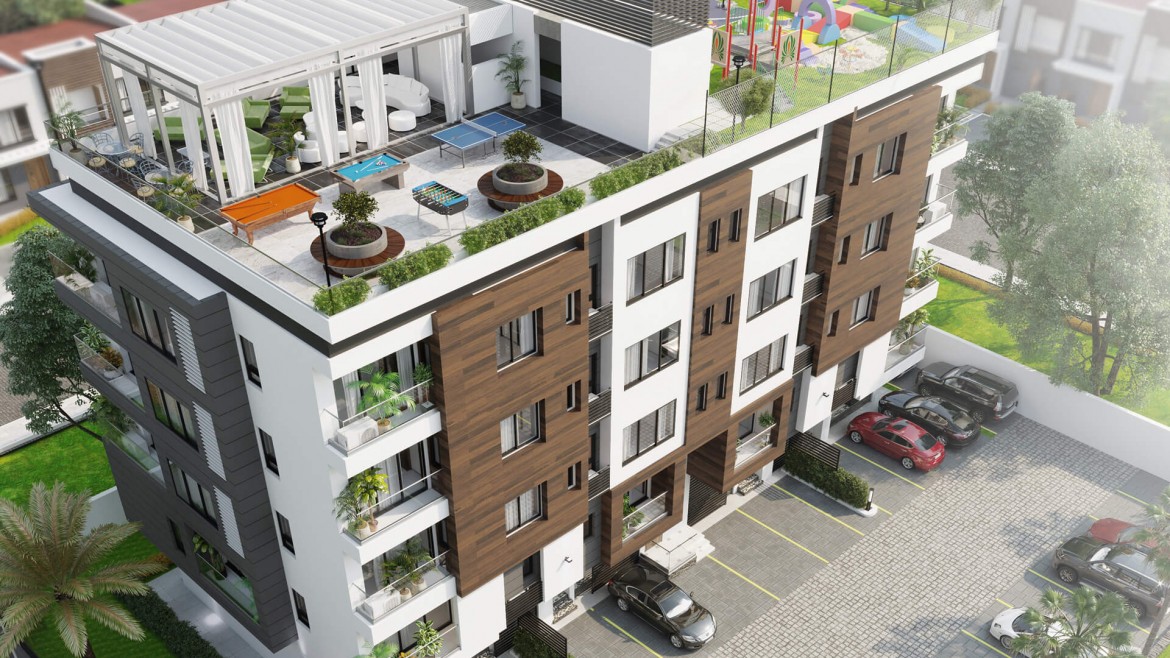A location rental arrangement, at its core, is a legally binding agreement in between a location owner and an occasion organizer. It details the terms of paying rent, under which the event organizer accepts pay lease to a place for a set duration or particular occasion. This legal document is vital as it protects the interests of both celebrations, guaranteeing clearness on elements such as rental fees, payment schedule, and place use duties.

In this post, we will look into the essential differences in the location rental agreement definition, breaking down its three key differences and components and explaining why it is important for an effective event collaboration.

1. Understanding Rental Agreements
2. Key Components of a Rental Agreement
3. Financial Aspects of Rental Agreements
4. Legal Considerations
5. Practical Tips for Tenants and Landlords
Understanding Rental Agreements
Rental Agreement Definition
A venue rental arrangement is a formal contract in between a place owner and an occasion organizer that sets out the terms and conditions for leasing a location. Unlike lease arrangements, which are usually long-lasting plans for property or commercial residential or commercial properties, location rental arrangements are particular to specific events and have a set term with a defined end date. This document is lawfully binding, indicating both parties should adhere to its terms.
Typically, a place rental contract consists of important details such as the rental duration, rental fee, rent payments, payment due dates, and duties for venue setup and breakdown. It likewise covers rules concerning occasion activities, such as permitted noise levels, capacity limitations, and devices use.
By plainly defining these terms, the location rental or lease agreement assists avoid misunderstandings and conflicts, offering a reference point for resolving any issues that may develop. Thus, a well-drafted venue lease or rental arrangement, is essential for guaranteeing a smooth and effective event.
Importance of a Rental Agreement
The value of a venue rental arrangement can not be overemphasized. Primarily, it safeguards the interests of both the place owner and the occasion organizer. For place owners, it supplies a clear framework for gathering rental costs, managing venue upkeep, and setting expectations for occasion activities.
If event organizers breach the lease or terms, venue owners have legal option, such as withholding the down payment or looking for legal defense. For event organizers, it ensures they have a secured venue for their event with defined terms concerning lease control, rental fees, occasion period, and location use.
Additionally, a venue rental agreement can act as evidence in legal disagreements, safeguarding both parties from potential misconceptions or breaches of agreement. Without such an arrangement, either celebration might face unpredictabilities and threats, resulting in disputes that might otherwise be avoided. Therefore, a venue rental contract is essential for fostering a strong and mutually useful partnership.
Common Terms in Rental Agreements
Venue rental contracts normally include numerous typical terms to guarantee clarity and good understanding. A venue agreement is a legal agreement in between venue owners and event organizers that develops terms for leasing venues, outlining the rights and obligations of both parties.
Key terms consist of the rental period, which defines the event dates and times, and the rental charge, detailing the total expense and payment schedule. It likewise lays out the security deposit, which is an amount held by the location owner to cover possible damages or unsettled fees. Venue usage is clearly defined in verbal agreements, showing allowed activities, capacity limitations, and equipment constraints.
Additionally, the location rental contract may consist of provisions about event setup and breakdown, clean-up responsibilities, and insurance coverage requirements. Lastly, there's frequently a termination clause that discusses the conditions under which the location rental agreement can be ended by either celebration. Understanding these terms is crucial for both place owners and occasion organizers to handle their expectations and responsibilities effectively.

Key Components of a Rental Agreement
Venue and Event Organizer Information
An essential component of any place rental agreement is the clear addition of venue and event organizer info. This section typically starts with the full names of both the venue owner or representative and the occasion organizer. Accurate contact details, such as telephone number, e-mail addresses, and physical addresses, must also be offered in composed rental arrangement.
This ensures that both parties can easily interact throughout the occasion preparation procedure. Having clear and precise info assists prevent misunderstandings and makes sure that both parties are liable. It also offers a reputable point of referral must any disagreements arise or if legal action ends up being needed.
Thus, consisting of thorough location and occasion organizer info is essential for a well-structured place rental contract.

Venue Description
The location description is a crucial element of the venue rental lease arrangement itself, providing a clear depiction of the area being leased. This area of lease arrangement need to consist of the complete address of the place, detailing the street name, number, city, and postal code.
Additionally, it is helpful to describe the kind of venue, such as whether it is a convention center, hotel ballroom, or outside space. Key features of the place, like capability, layout alternatives, available equipment, and parking centers, need to also be kept in mind. This makes sure that both location owner and event organizer have a shared understanding of the area. Specifying these details helps prevent any possible disagreements or confusion about the place's condition and capabilities at the time of the event.
Therefore, a comprehensive place description is vital for a transparent and reliable location rental agreement.
Event Details and Duration
The occasion information and period are another important component of a location rental agreement. This section specifies the event name, date, begin time, and end time. It is very important to clearly outline the kind of occasion, such as a conference, wedding, or trade convention.
Additionally, this section ought to include any particular requirements or preferences of the event organizer, such as space setup, storage space, catering needs, or audiovisual equipment. By clearly defining the event details and duration, both location owner and event organizer can plan and coordinate successfully.
This helps to ensure that the location is prepared to accommodate the event's particular needs which the occasion organizer has a clear understanding of the rental duration. Thus, a specific statement of the occasion information and period of rental term is vital for setting clear expectations and obligations.
Financial Aspects of Rental Agreements
Rental Fee and Payment Terms
The rental charge and payment terms area of a place rental contract is critical for describing the monetary responsibilities of the occasion organizer, especially their responsibility to pay the rental cost. It specifies the total rental charge, clearly stating the quantity the event organizer is needed to pay. This section ought to also information the payment schedule, including any deposits, installments, or last payment due dates. The contract ought to plainly detail the accepted payment techniques, such as charge card, wire transfer, or check.
Additionally, it is essential to include any late costs or charges that might use to rental residential or commercial property if payments are not made on time. By supplying these information, both celebrations can avoid confusion and make sure a smooth monetary deal procedure. Furthermore, this section ought to lay out any additional costs, such as cleaning fees, devices leasing fees, or service charges. Clear rental fee and payment terms are vital for maintaining a transparent and reasonable business relationship.
Down payment
Security deposits play a substantial role in location rental agreements, providing financial security for place owners versus potential damages or overdue fees. This area must define the quantity of the down payment required, which is usually a percentage of the overall rental charge. It ought to also detail the conditions under which the deposit will be gone back to the occasion organizer, such as the place being left in good condition and all fees being paid completely.
Additionally, the contract should mention the timeframe within which lease amount of the deposit will be returned after the occasion. Any deductions from lease quantity of the deposit for damages or extra cleaning need to be plainly itemized and validated. This transparency helps prevent disagreements and makes sure that event organizers are mindful of their obligations. By detailing the regards to the down payment, both place owners and occasion organizers can have a clear understanding of their financial commitments and defenses.
Venue Usage Fees and Added Fees
Venue usage fees and surcharges are frequently included in location rental contracts. This area ought to plainly outline any fees related to specific location features or services, such as audio-visual devices, catering, or staffing. It is important to specify the rates for these services and any appropriate taxes or service charges.
Additionally, this area must information any overtime charges or charges for surpassing the agreed-upon event hours. By clearly defining these costs, both venue owners and occasion organizers can prevent misunderstandings and make sure accurate billing. This transparency helps construct trust and keep a positive company relationship.
Legal Considerations
Rights and Responsibilities
The rights and duties section of a place rental arrangement is vital for outlining the legal commitments of both the venue owner and the event organizer. For place owners, this area typically includes the responsibility to provide a safe and suitable venue for the occasion, keep the venue in good condition, and adhere to all appropriate local laws and guidelines. For occasion organizers, obligations often include paying the rental fee on time, adhering to the terms of the contract, and complying with any venue guidelines or restrictions.
Additionally, occasion organizers can pay rent and utilize the location as agreed upon, while place owners have the right to receive payment and expect the location to be used responsibly. Clearly mentioning these rights and duties assists avoid misconceptions and ensures that both parties understand their legal tasks, fostering a fair and respectful organization relationship.
Termination Clauses
Termination stipulations are a vital part of a venue rental residential or commercial property and agreement, detailing the conditions under which the arrangement can be ended by either celebration. This area ought to define the notice duration required for both the location rental residential or commercial property owner and the occasion organizer to end the agreement.
Typically, occasion organizers require to supply a specific notification period, while venue owners may have various requirements for correct notification and due notice durations, depending upon the situations. The stipulation must also detail the grounds for early termination, such as breach of contract, non-payment of charges, or infraction of venue rules.
Additionally, it may consist of provisions for terminating the very same rental contract without penalty in unique circumstances, such as unexpected events or force majeure. By clearly defining the termination process, both celebrations can prevent confusion and make sure a smooth shift when the event ends. This transparency assists secure the rights of both the venue owner and the event organizer, making the venue rental arrangement reasonable and balanced.
Dispute Resolution
Dispute resolution is an essential part of any place rental agreement, providing a structure for fixing disputes in between the venue owner and the event organizer. This area must outline the steps to be taken if a dispute arises, beginning with informal discussions to look for a mutually acceptable solution. If informal resolution fails, the agreement may define mediation or arbitration as the next actions, where either legal counsel or a neutral 3rd party assists work out a settlement.
Additionally, the place rental contract might indicate the jurisdiction and legal procedures to be followed if the conflict escalates to legal action. By specifying these processes, both parties understand their options and commitments, lowering the possibility of prolonged conflict. Having a clear dispute resolution provision assists keep a favorable company relationship and makes sure that problems are attended to relatively and effectively.
This structured approach to fixing disagreements is necessary for preserving trust and cooperation throughout the occasion planning procedure.
Practical Tips for Tenants and Landlords
Reviewing the Agreement
Thoroughly taking a look at the event contract is important for both organizers and place owners. This makes sure a clear understanding of obligations, expectations, and potential liabilities. Organizers should inspect sections of legally binding agreements related to occasion dates, times, place capability, charges, deposits, cancellation policies, and devices use.
It's vital to identify any obscurities or undesirable terms and look for information from the place. Venue owners must validate that the contract describes insurance requirements, damage waivers, payment schedules, and occasion restrictions. Consulting with an attorney can provide extra insights into lawfully binding contracts legality and security.
By carefully examining the contract, both celebrations can establish a strong foundation for an effective event collaboration.
Negotiating Terms
Effective settlement is crucial to accomplishing a mutually helpful occasion contract. Open communication in between organizers and venue owners can lead to versatile arrangements that accommodate both parties' needs. Organizers can propose adjustments to occasion timing, room layout, or extra services.
For example, requesting prolonged occasion hours might involve working out an extra fee. Venue owners can go over possible upgrades, such as improved audiovisual devices or catering choices, in exchange for increased rental rates or other costs. A collaborative technique cultivates a positive relationship and increases the probability of future collaborations. All agreed-upon changes must be documented in composing as agreement amendments.
Keeping Records

Maintaining detailed records is essential for both occasion organizers and venue owners. Organizers should retain copies of the contract, payment invoices, correspondence with the venue, and event-related documentation. This proof can be invaluable in case of conflicts or for future reference. Venue owners should keep in-depth records of event bookings, monetary deals, damage reports, and interaction with organizers.
Utilizing event management software can improve record-keeping and improve effectiveness. By diligently recording all aspects of the occasion, both the celebrations included can protect their interests and assist in smooth event operations.








